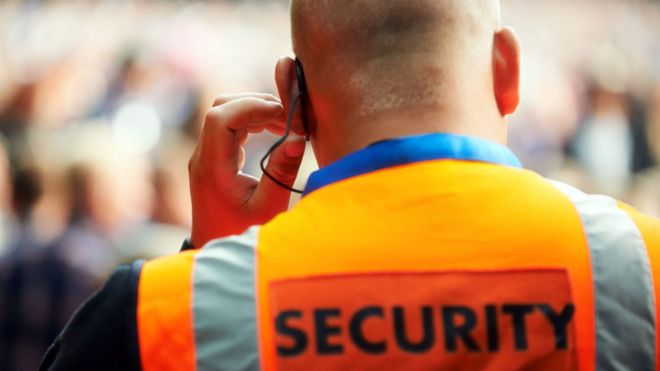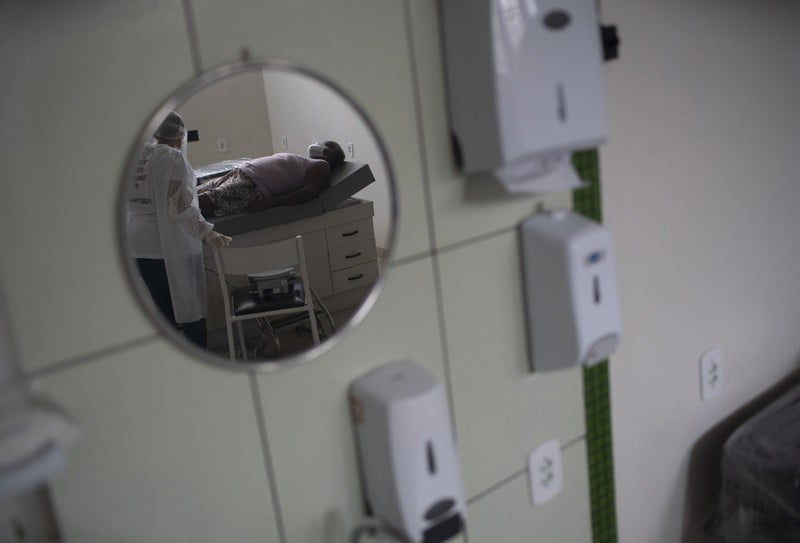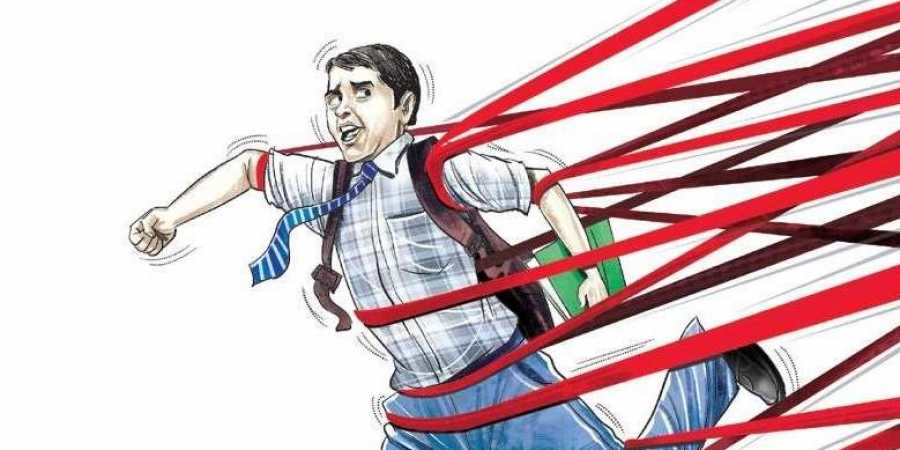
The head of an exam board is warning that undetected qualifications fraud in the security industry is becoming a “risk to public safety”.
Raymond Clarke, chief executive of Industry Qualifications, is calling for tougher scrutiny to prevent fraud in workplace qualifications.
And when it applies to security staff, he says, such fraud is a “significant threat to public safety and wellbeing”.
Exam watchdog Ofqual said it had “a number of ongoing investigations”.
Safety fears
Mr Clarke says regulation is more focused on trying to prevent academic malpractice, but it is not adequately equipped to take on systematic, deliberate fraud.
He says he is speaking out because of “frustration” at the lack of effective monitoring – and because qualifications fraud is “more widespread than we might like to believe”.
He is calling for an expert panel to be set up to try to establish the extent of qualifications fraud, particularly in areas of security and public risk.
This could be in jobs such as security guards or door supervisors.
Such fraud could be falsifying course work or test answers, by individuals or colleges or training centres, to allow people to dishonestly gain qualifications needed for work.
And it could mean unsuitable or untrained staff being put into positions where safety would be compromised.
‘Lifting the carpet’
“In an age tragically marked by terrorist atrocities, we need to know that those charged with keeping us safe are appropriately trained and qualified through a rigorous system of assessment and accreditation,” says a statement from the Industry Qualifications awarding body.
But at present, Mr Clarke says, there is insufficient gathering of information and record-keeping about fraud and inadequate efforts to pursue those responsible.
And he fears that when fraud is caught in one part of the education sector or type of qualification, it moves to another.
“If you lift the carpet, there’s a lot going on under it,” he said.
Mr Clarke’s own awarding body was caught up in a case of fraud exposed by the BBC, when a college was found to be helping students to gain its qualifications fraudulently.
Undercover researchers found colleges that would sit or forge exams for a fee, for students wanting to get qualifications needed for a Security Industry Authority card.
But Mr Clarke says that the “worrying fact” is that people involved in such frauds “could still be active in the delivery of regulated qualifications elsewhere – nobody knows”.
He warns that for awarding bodies there is insufficient up-to-date information to alert them of fraudulent activity.
He is calling for better co-ordination with the police and ways to prevent fraudsters from returning to the education sector.
“A failure to confront the issue serves the interests of nobody other than the fraudsters,” says Mr Clarke.
‘Robust’ rules
There has been a long history of fraud at the edges of the education and qualifications system – and Mr Clarke says there has been insufficient effort to root this out.
“Bogus colleges” have operated as a front for getting visas for overseas students, and earlier this month more than 40 websites that had been selling fake degrees were shut down.
There have also been concerns raised about private colleges recruiting large numbers of people to courses they might not properly complete – with payments to colleges from fees and students being able to claim loans.
The qualifications regulator Ofqual said there were “robust procedures” in place to make sure awarding bodies gave qualifications only to “candidates who have met the right standard in assessments completed in the right conditions”.
“This includes ensuring that the potential for malpractice, including fraud, is avoided, and that suspected malpractice is properly investigated so that action can be taken against those found to be responsible,” said an Ofqual spokesman.
“As the exams regulator, we are continually vigilant about malpractice, including fraud.
“We investigate and take action when necessary and alert other stakeholders, including the police, and currently have a number of ongoing investigations.”
[Source:- BBC]









